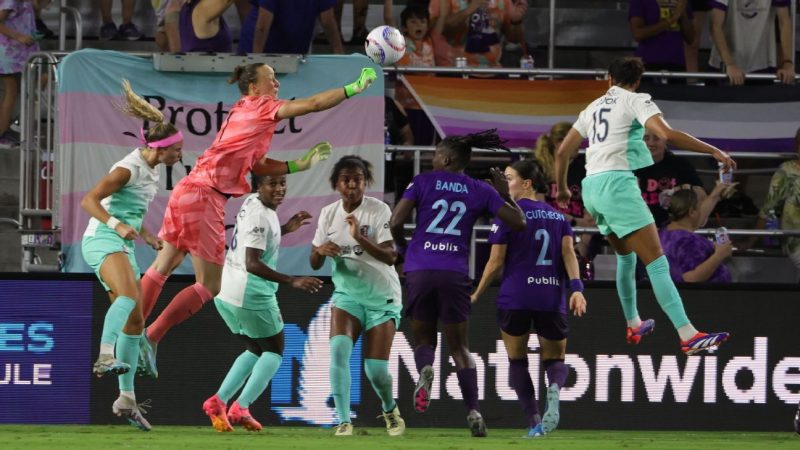
Almuth Schult, a decorated goalkeeper with an Olympic gold medal and a Champions League title under her belt, recently announced her retirement from professional soccer at the age of 34. Her departure, however, wasn’t due to declining skills or injuries. Instead, Schult points to a stark reality within European women’s football: a reluctance to sign players who are also mothers.
In an interview with Germany’s Kicker magazine, Schult shared her belief that her career ended prematurely because European clubs were hesitant to accommodate the demands of motherhood. She felt that despite her proven ability to perform at a high level after previous pregnancies, top clubs only offered her backup roles. This, she says, was the primary reason negotiations for new contracts faltered.
Schult, a mother of three children (twins born in 2020 and a third child in 2023), maintains that she could have continued playing at the highest level for another one or two years. She highlights the disparity between the support she received in the U.S. with the Kansas City Current and the perceived lack of similar support in Europe. She specifically points to the difficulty she faced after her second pregnancy, noting that no European club believed she was capable of contributing despite her past successes.
Her experience underscores a critical issue within women’s soccer. While the NWSL in the United States appears to be more accommodating of mothers, Schult’s case suggests a significant gap in support and understanding within European leagues. Her story prompts a necessary conversation about the challenges faced by female athletes who choose to balance motherhood with a demanding professional career, and the need for greater institutional support to ensure equal opportunities for all.
Schult’s legacy extends beyond her impressive on-field achievements. She’s also carved a successful career as a German TV commentator. However, her retirement serves as a powerful reminder of the systemic barriers that still exist for female athletes who choose to start families. Her candid account is a call to action for European clubs and governing bodies to foster a more inclusive and supportive environment for mothers in the sport.









